Inflammatory Bowel Disease Dogs
Inflammatory bowel disease dogs. The true underlying cause of your dogs IBD can range from infection allergies an abnormal immune system and even genetics. However if they occur every day or more than once a week your dog may have a condition called inflammatory bowel disease IBD. Treating the family dog for whats commonly referred to as an inflammatory bowel disease.
Biologic markers that can be used to objectively assess the natural progression and predict the cou. Current management strategies for this disease typically involve assessing the patient for resolution of clinical signs. Inflammatory Bowel Disease IBD in dogs is like a battle in the gut.
When these inflammatory cells reach your dogs stomach and GI tract they change the tracts. These clashes and brawls in your dogs gut are avoidable. IBD or Inflammatory bowel disease is a chronic inflammation of your dogs gastrointestinal tract GI tract characterized by the presence of inflammatory cells that are not related to another underlying health problem.
Many breeds are at an increased risk for IBD including German Shepherds Basenjis Soft coated Wheaten Terriers and Chinese Shar Peis. The condition is not life-threatening but can cause discomfort inconvenience and weight loss. And the collateral damage from these conflicts are the symptoms of IBD.
Most dogs with IBD have a history of recurrent or chronic vomiting or diarrhea and may have a poor appetite andor weight loss. Inflammatory bowel disease IBD is sometimes confused with irritable bowel syndrome IBS. Your dogs immune response struggles to defeat invading armies of foreign substances.
Once the inflammatory cells enter your dogs stomach and GI tract the intestinal tracts lining is altered impairing the normal absorption and passing of food. The first ingredient used on the food is chicken which helps to supply the bulk of the proteins that your dog needs. IBD is definitively diagnosed by biopsy of affected tissue.
Research shows that inflammatory bowel disease in dogs IBD is the most common cause of recurring sickness and chronic diarrhea in dogs 1. The inflammatory bowel disease also known as IBD is a painful condition and it is an immune mediated disease and may be aggravated by a number of foods.
However if they occur every day or more than once a week your dog may have a condition called inflammatory bowel disease IBD.
Dogs that are diagnosed with IBD will receive a special diet as a part of the management treatment. Most dogs with IBD have a history of recurrent or chronic vomiting or diarrhea and may have a poor appetite andor weight loss. Treating the family dog for whats commonly referred to as an inflammatory bowel disease. But just like actual wars fought between countries. The food is prepared with well-balanced nutrients that make it a perfect pick for adult dogs with problems such as sensitive stomach and inflammatory bowel disease. If a dog has inflammatory bowel disease or IBD then it causes the inflammatory cells to invade its GI mucosa. Inflammatory bowel disease in dogs is a common cause of chronic vomiting and diarrhea and continues to be one of the most challenging conditions for veterinarians to treat. Inflammatory Bowel Disease in Dogs. These conditions may pass naturally.
Biologic markers that can be used to objectively assess the natural progression and predict the cou. Inflammatory bowel disease IBD is sometimes confused with irritable bowel syndrome IBS. Once the inflammatory cells enter your dogs stomach and GI tract the intestinal tracts lining is altered impairing the normal absorption and passing of food. Cuterebriasis is a Parasite Causing Skin Infections in Dogs and Cats. The condition is not life-threatening but can cause discomfort inconvenience and weight loss. Coli protozoa single-celled organisms such as. Reducing toxins in your dogs diet is the goal say holistic vets.
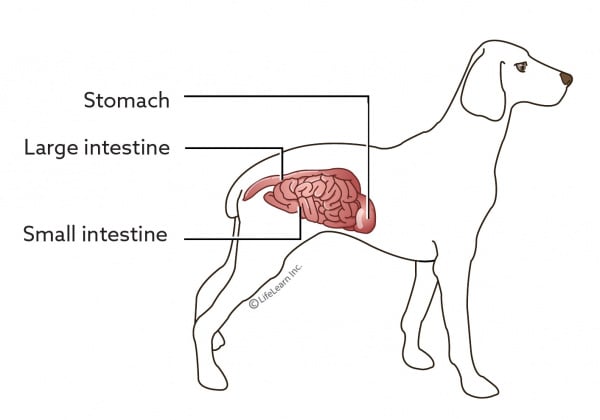
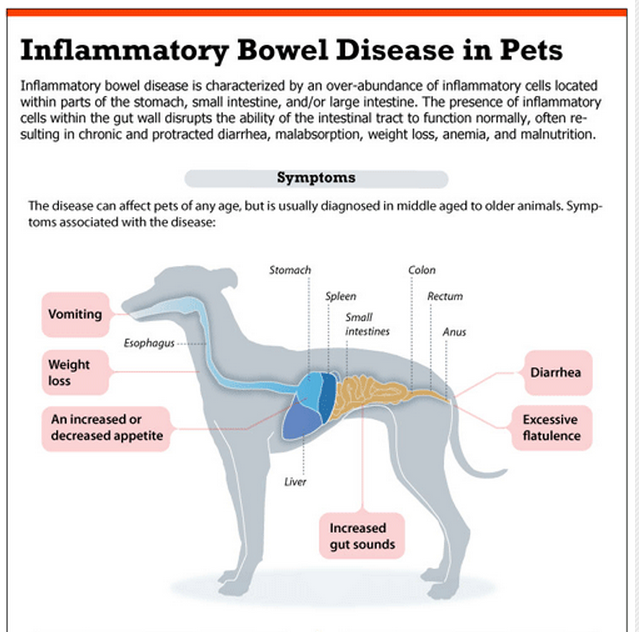








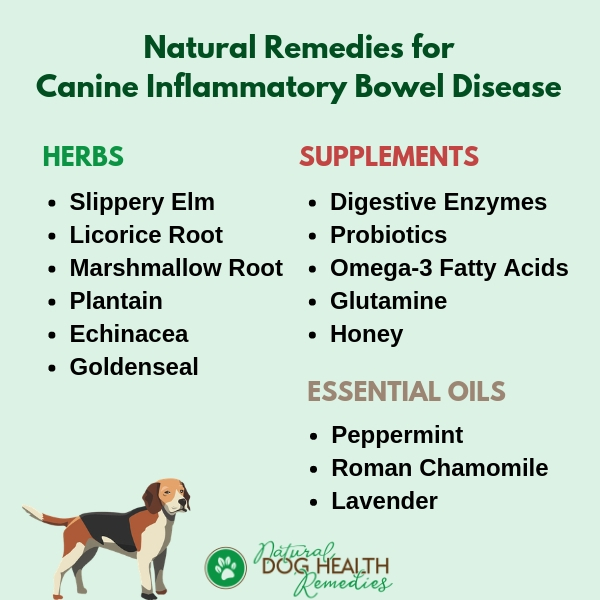



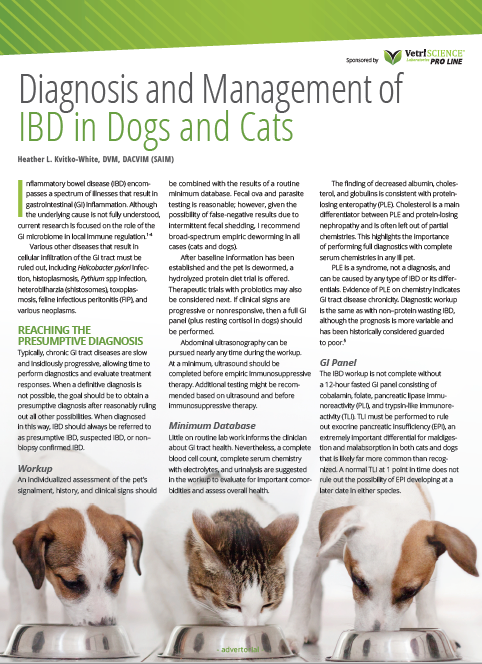

















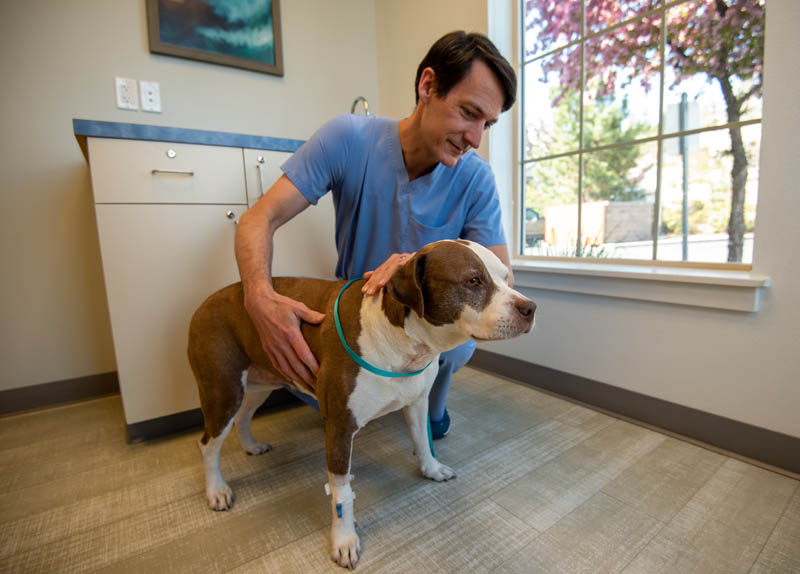

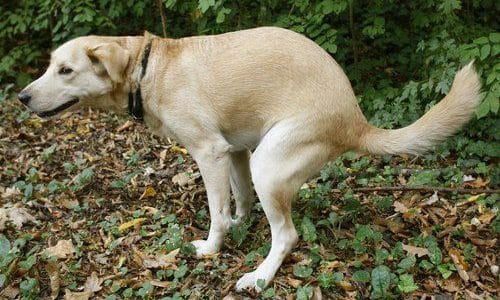




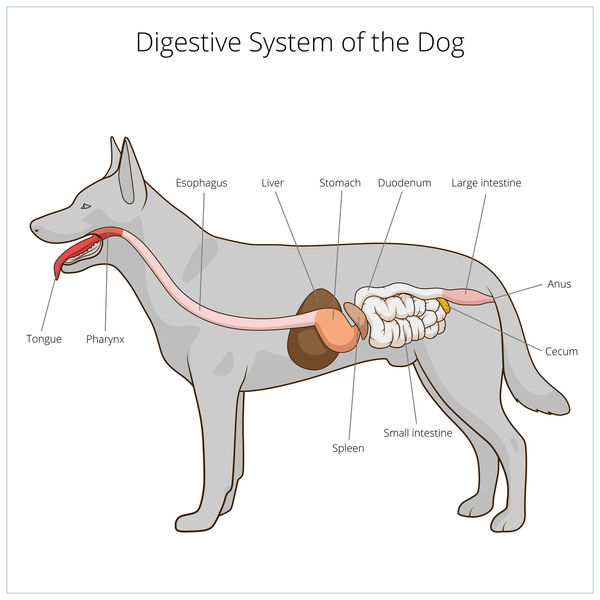
Post a Comment for "Inflammatory Bowel Disease Dogs"